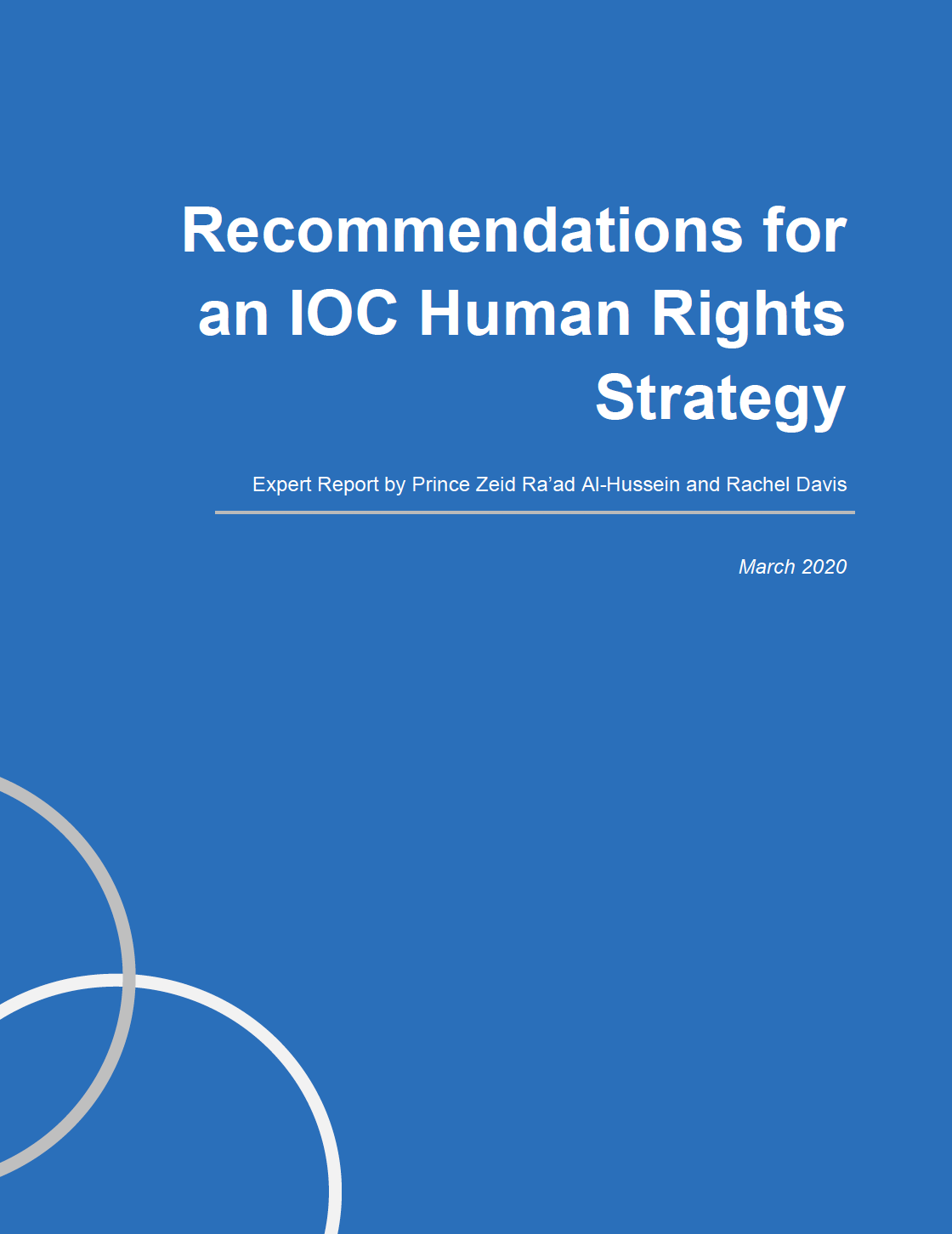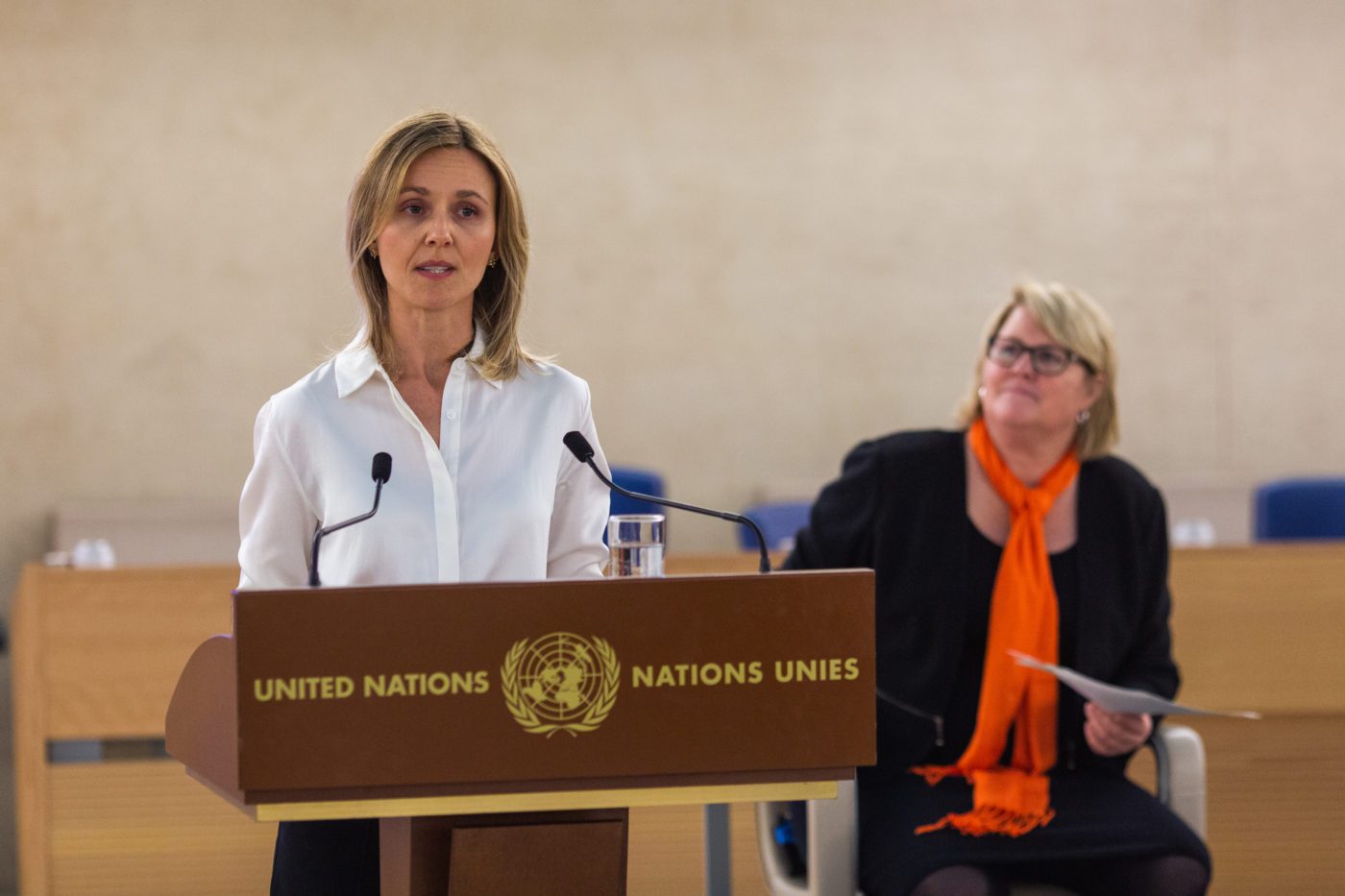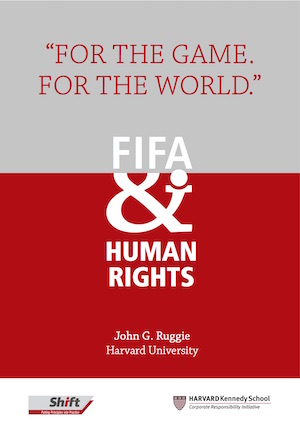In March 2020, Shift’s Rachel Davis and the former UN Human Rights Chief, Prince Zeid Ra’ad Al Hussein, delivered the report ‘Recommendations for an IOC Human Rights Strategy’ to IOC President Thomas Bach. The report in full has been made publicly available by the IOC on the organization’s website. Below is a summary of the recommendations that were included in the report, grouped into five pillars.
The authors recommend:
1. Articulating the IOC’s human rights responsibilities, including by adopting appropriate amendments to the Olympic Charter and other core documents, developing a detailed human rights policy commitment reflecting the expectations of the UN Guiding Principles on Business and Human Rights, and setting similar expectations for the Olympic Movement as a whole through the “Basic Universal Principles of Good Governance of the Olympic and Sports Movement”.
2. Embedding respect for human rights across the organization to ensure that the IOC’s commitment is driven into its values and culture, including by: hiring a Head of Human Rights to lead implementation of a new human rights strategy, supported by a Human Rights Unit; establishing a cross-functional steering group on human rights at Director-level; ensuring the IOC’s governing bodies take full account of human rights in their decision-making (including through the role of the proposed Human Rights Advisory Committee); and ensuring that there is human rights expertise in the IOC’s consultative Commissions.
3. Identifying and addressing human rights risks by strengthening human rights due diligence across the IOC’s operations, including by: routinely integrating the perspectives of affected stakeholders (such as athletes, journalists, volunteers, fans, workers and local communities) into the process of identifying and taking action on human rights risks; significantly strengthening the way in which athlete voice and representation informs decision-making within the IOC and the Movement more broadly; taking a more robust approach to using the IOC’s leverage with National Olympic Committees and International Federations on human rights issues; and integrating a focus on salient human rights issues (such as child protection and respect for athletes’ human rights) into existing areas of the IOC’s work.
4. Tracking and communicating on the IOC’s progress, including by: evaluating the human rights performance of the IOC’s partners, especially that of OCOGs for upcoming editions of the Olympic Games; deepening the IOC’s engagement with affected stakeholders and their legitimate representatives (including trade union representatives where athletes are unionized), or with credible proxies for affected stakeholders’ views where direct engagement is not possible; and enhancing transparency about the IOC’s human rights efforts.
5. Strengthening the wider remedy ecosystem in sport by contributing to a significant improvement in the quality of grievance mechanisms at all levels of sport, including strengthening sports bodies’ own mechanisms, supporting social dialogue processes in sport, and enabling access to state-based forms of remedy for severe human rights harms. We recommended that this should begin with an initial focus on: improving access to remedy in cases of harassment and abuse; improving Games-time grievance mechanisms (run by the IOC as well as by OCOGs); and reviewing the preparedness of the IOC’s own systems to handle human rights complaints.
ABOUT THE AUTHORS
Zeid Ra’ad Al Hussein was the UN human rights chief from 2014-2018; and is a highly-regarded defender and promoter of universal human rights -awarded the Stockholm prize in 2015 as well the Tulip prize in 2018 for his human rights work. For much of his career, he was a senior diplomat, serving twice as Jordan’s ambassador to the United Nations (in New York) and once as Jordan’s ambassador to the United States (2007-2010). He also represented Jordan twice before the International Court of Justice (ICJ). In January 2014, he served as president of the UN Security Council. Earlier, in 2002 he was elected the first president of the governing body of the International Criminal Court (ICC) — guiding the court’s growth in its first three years (9/2002-9/2005). He chaired some of the most complex legal negotiations associated with the court’s statute. He contributed to the international community’s efforts at countering the threat of nuclear materials being trafficked by terrorists (2010-2014). And he led the UN’s efforts at eliminating sexual exploitation and abuse in UN peacekeeping (2004-2007). From 1994-1996, he was a UN civilian peacekeeper with UNPROFOR. He has degrees from Johns Hopkins and Cambridge universities. In 2019, he was appointed a member of The Elders, an independent group of global leaders working for peace, justice and human rights, founded by Nelson Mandela. He is currently the Perry World House Professor of the Practice of Law and Human Rights at the University of Pennsylvania. In 2019, he was inducted into the American Academy of Arts and Sciences and awarded an honorary knighthood (KCMG) from Queen Elizabeth II.
Rachel Davis is Co-founder and Vice President of Shift, the leading center of expertise on the UN Guiding Principles on Human Rights, where she has led work for the last decade on standard-setting, human rights and sports, financial institutions, conflict and international law. Rachel has been the Chair of FIFA’s independent Human Rights Advisory Board since it was established in 2017 and has advised the International Olympic Committee on human rights since 2018. She was a senior legal advisor to the Special Representative of the UN Secretary-General on business and human rights, Harvard Professor John Ruggie (2006-2011), and is a Senior Program Fellow with the Corporate Responsibility Initiative at Harvard Kennedy School. An author of the leading study on the costs of company-community conflict in the extractive sector, Rachel has worked at the High Court of Australia and the UN International Criminal Tribunal for the former Yugoslavia. She is a graduate of Harvard University and the University of New South Wales.


